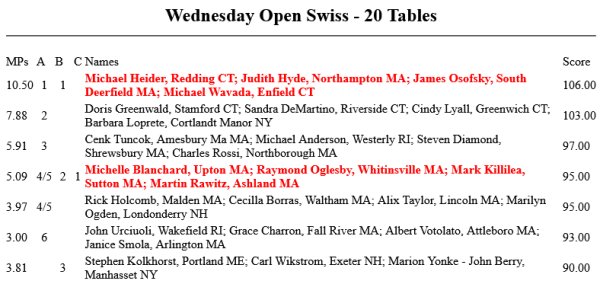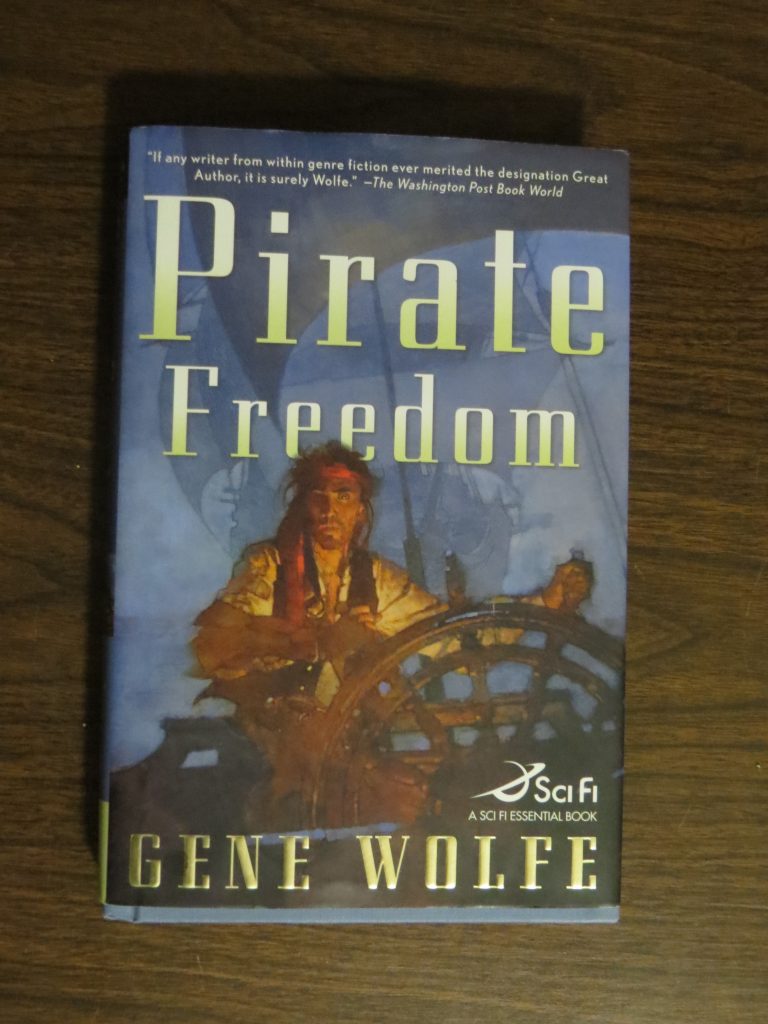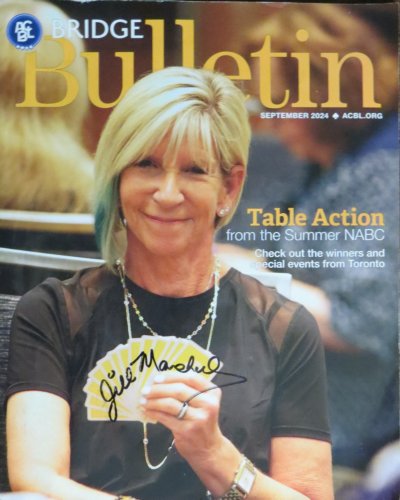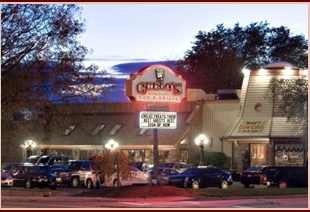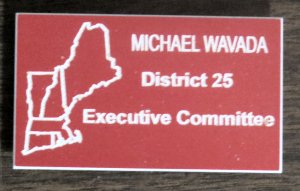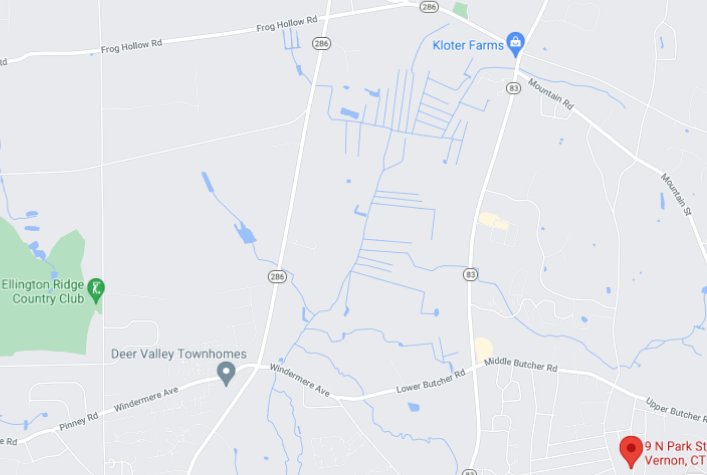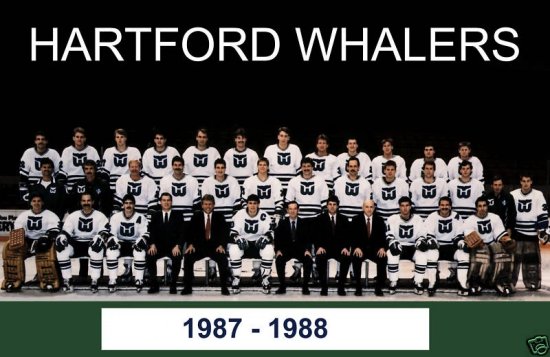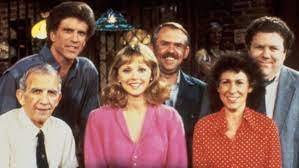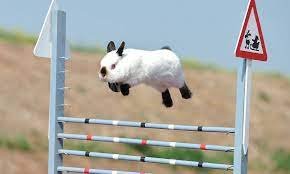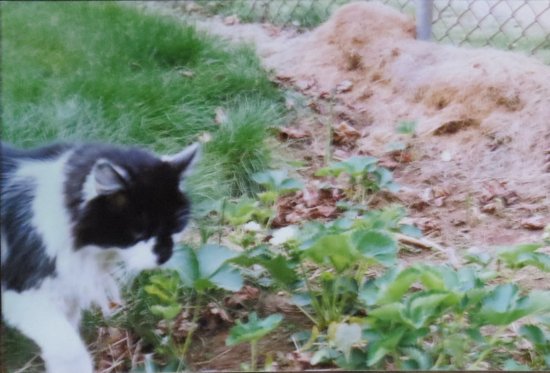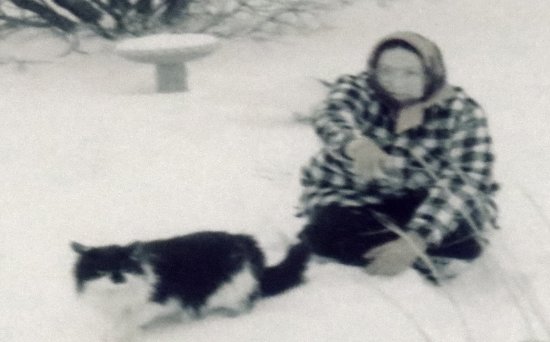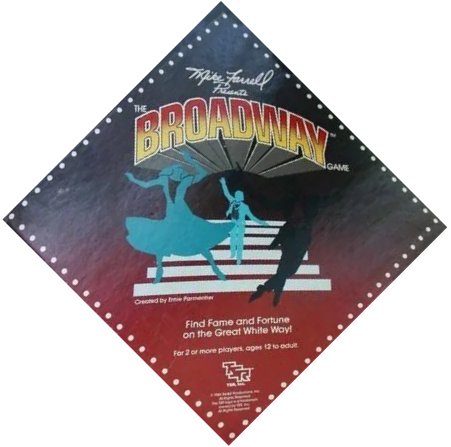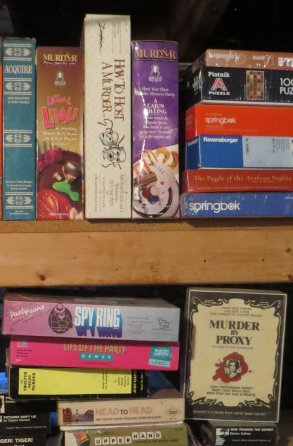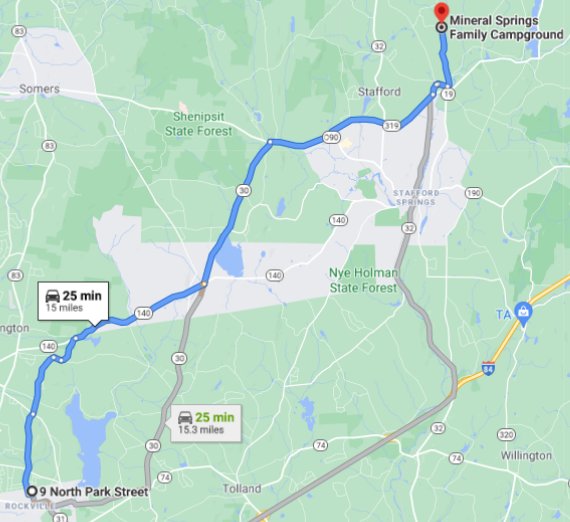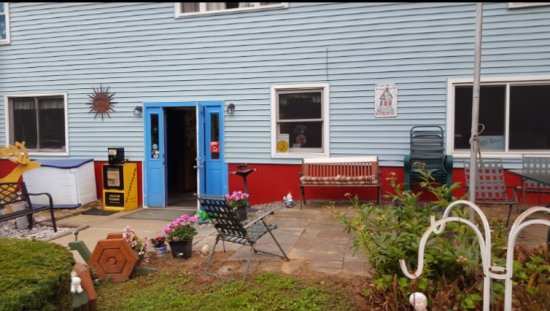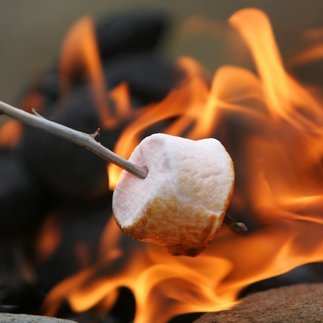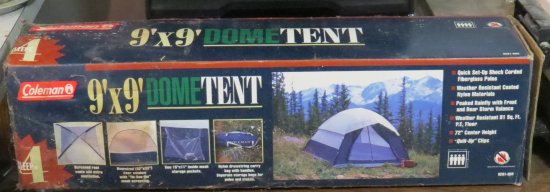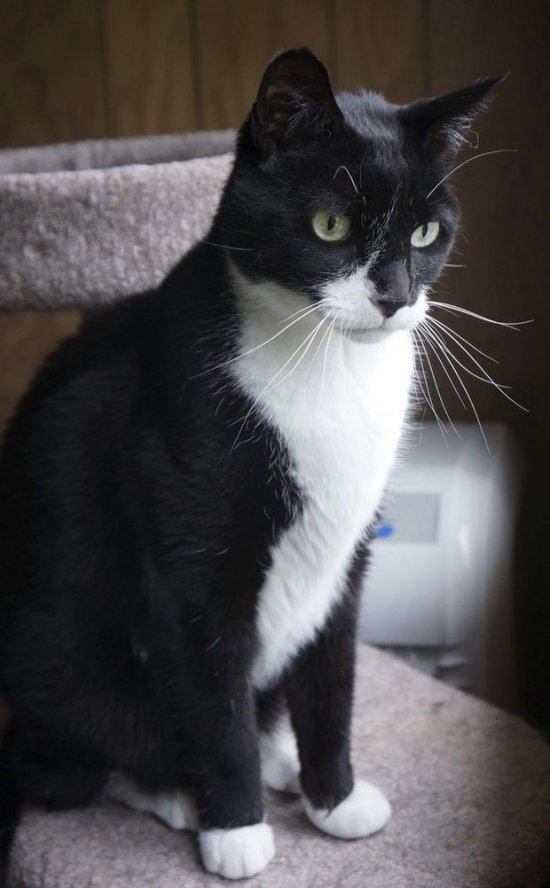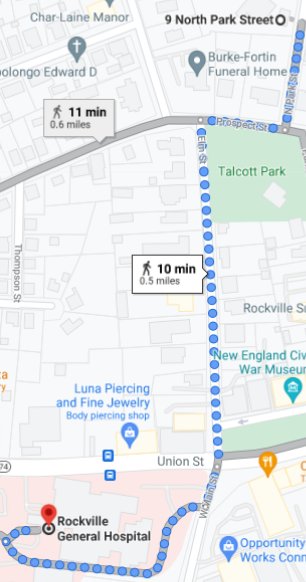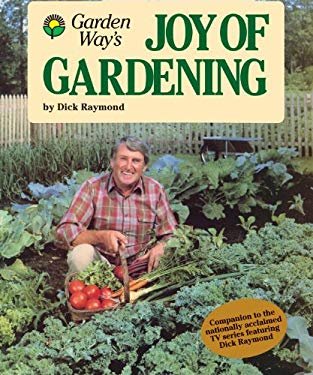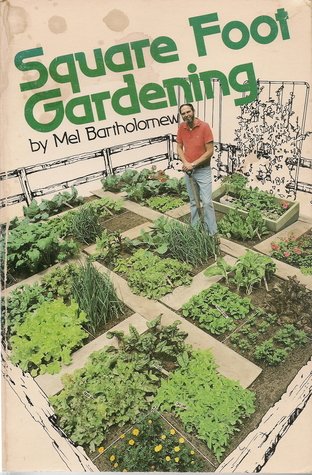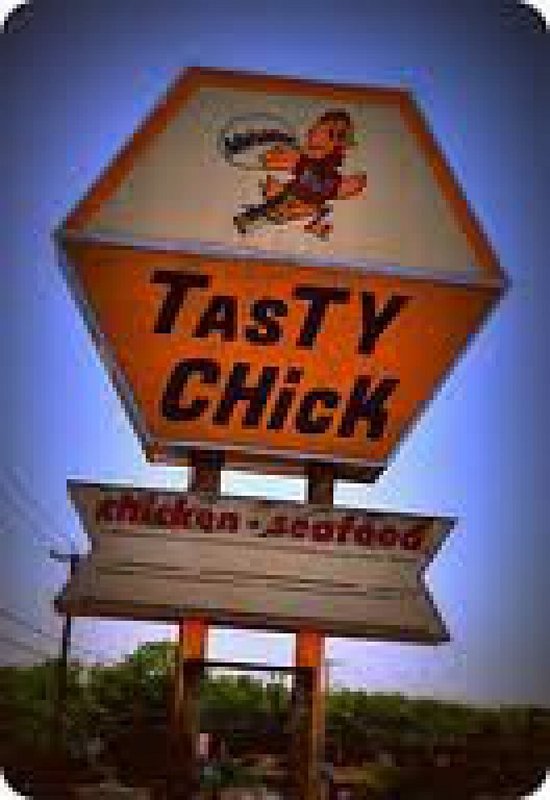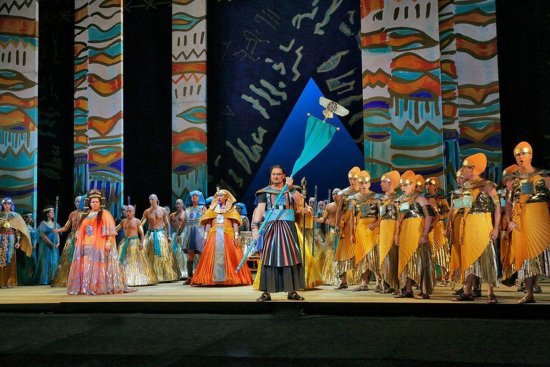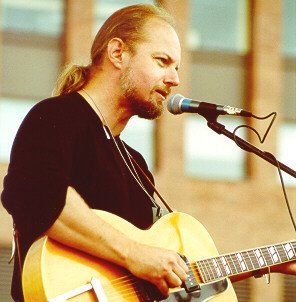Regionals and other events in New England. Continue reading
By the end of 2023 I was thoroughly disgusted with the state of affairs in the district. The new president, Susan Miguel, and vice-president, Denise Bahosh, had ideas about running the district that were drastically different from the ones that Bob Bertoni and the people who had called the shots prior to the pandemic had promulgated. The new people insisted that every tournament should have a party atmosphere. They also seemed to think that the only way to induce new players to attend was to bribe them.
The final tournament of 2023 in Marlborough, MA (described here) included a meeting of the Executive Committee. One of the last things discussed was how to attract people to the evening games. In the closing minutes I suggested trying a Pro-Am pairs game in which each pair must have at least one non-Life Master. I remembered that we had attracted two sections of players to such an event before the pandemic. Susan asked if I would agree to tun it. Thinking that she meant at the next tournament in February in Southbridge and that I would be able to market it the way that I wanted, I agreed. The complete story of the 2024 Pro-Am is posted here.
Playbook NLM Regional in Mansfield, MA
The first event of 2024 sponsored by District 25 was called the Playbook NLM Regional. It ran from Tuesday through Friday, February 6-9. The site was the enVision Hotel and Conference Center in Mansfield, MA., that was formerly a Holiday Inn. The Harvest Regionals had been held there for a few years before the pandemic. The all-weekday schedule was, as I recall, devised because the hotel was not available on weekends. In late 2029 the Executive Committee, of which I was a member, held an email vote whether the Tournament Scheduling Committee, run by Denise and Susan after Mark Oettinger was forced out, should continue to “investigate the feasibility” of a gathering that included an open sectional and a limited regional for non-Life Masters with less than 750 masterpoints. The event was placed on the calendar without a subsequent vote.So much for democracy in D25.
The Gold Rush events drew nine or ten tables per day. The sectional drew more than twice as many people, but the five-day event drew approximately the same number per day as the sectional in Watertown, MA, in February 2023. Neither my wife Sue nor I attended. The tournament broke even financially.
The Executive Committee met on Thursday evening. I attended via Zoom. As usual for the previous three years I went away both disgusted and frustrated. The only good news that I heard was that Joe Brouillard had somehow been able to report that the district had over $147,000 in liquid assets. The next tournament would be a five-day (April 17-21) affair in the Wellsworth Hotel in Southbridge, MA. This hotel was once headquarters for American Optical Company and served as the previous site for tournaments under a different name.
For some reason the Executive Committee did not meet in Southbridge, but there was a Zoom meeting on April 2. Among other things this virtual gathering revealed the incredible news that New England will probably never again be allowed to host an NABC. That meant that the district now had roughly $150,000 in liquid assets and no fixed expenses whatever!
My overall reaction to the meeting was uniformly negative. We talked about everything but tournaments. The district’s leadership seemed to be getting distracted by all kinds of extraneous stuff from the role of running good tournaments for our players. I let off steam with a long email to CBA president, Bill Segraves.
I am so exasperated with the attitudes of the people on the Executive Committee that I cannot sleep. I think that I must resign for my own mental health. My wife was subjected to an hour or so of ranting after this painful 2.5 hour meeting. If I had my way, the word “fabulous” would be removed from the dictionary. I am so sick of hearing how fabulous and fun everything is in an activity that I see as falling apart.
Prior to Covid I played every day in nearly every regional. Up until 2016 D25 ran six regional tournaments, one hybrid event for I/N called the Rainbow weekend, and face-to-face qualifying events in both the NAP and GNT. Here it is April, and the only open event we have held since the crappy Halloween tournament was a sectional. The only thing scheduled before June is a “right-sized” tournament in Southbridge that has been (in my opinion) poorly promoted.
Bob Bertoni, our former District Director who died in 2021, implemented the philosophy of holding outstanding tournaments through a combination of good schedules, good sites, and good marketing. Since his demise we have lost our way. In my opinion the purpose of the NEBC should be to present as many good events as possible. Online events do not qualify for many reasons. As I have written before, the online game resembles bridge in some ways, but it is not bridge any more than softball is the same game as baseball. In fact the online game is, I am quite convinced, rapidly destroying the game that I and thousands of others loved before the pandemic.
I voted against moving the GNT and NAP to online in 2021, but no one else on the ExComm did. The decision was called a no-brainer by the acting District Director. I played in one online GNT qualifier and absolutely hated it. Now we learn that we are having a difficult time attracting players to the online qualifiers, and, even though the president admitted that “the bloom is off the rose”, the best that the ExComm can do is put together a subcommittee to come up with a suggestion. To me the solution is obvious. Bring back the Rainbow Weekend (or its successor, the Gold Mine) for the Flight C GNT and hold the others at tournaments. No one even mentioned this as a possibility. Maybe we would lose a little money. So be it. The context of all of this is that we have the incredible sum of $137,000 available, and it is “99% certain” that we will be deprived of the opportunity to use it for an NABC event in New England.
To me nearly every bit of the discussion at the meeting was away from the two critical topics — online bridge and really good tournaments. Maybe we cannot do much about the ACBL’s pact with the online devil, which will apparently be expanded, not eliminated. I cannot brook the way that the Executive Committee management now seems to be focused on so many distractions from its primary purpose of putting on good tournaments. We do not need committees and brainstorming sessions to find out how to do this. Good tournaments have good sites, good schedules, and good promotion. Maybe we will lose money if we go back to this formula, but if we put on really good tournaments, I suspect that the world will come to them. If I am wrong, then at least we went down trying to do what we were supposed to do.
On another subject: The CBA board needs to be notified immediately about the massive increase in the STaC charge. I don’t think that many board members will want to accept such a large increase in the amount the CBA spends on the few clubs who run these games. Certainly not Cindy. As I said, if the HBC has to pay the table fees, I think that it might no longer participate in the STaCs, at least in the open games.
Your proposal to give scholarships to people organizing bridge clubs in college may be a good idea, but where is the evidence that there would be a lasting effect? From what I heard, as soon as the enthusiastic organizer leaves, the program generally dissolves. That is what always seemed to happen in the world of intercollegiate debate with which I am rather familiar. I don’t have any evidence about bridge clubs, but it seems to me that if we are to invest in college bridge, the money might be better spent in subsidizing the clubs themselves rather than the charismatic leaders. Also, I think that it makes more sense for this to be proposed to the ACBL educational fund rather than the NEBC, the mandate of which is to put on tournaments.
I am serious about all of this. I am tired of being the lonely vox clamantis in deserto. I cannot stand what has happened to bridge in New England during the last few years. Maybe I should just spend my efforts trying to help the Hartford Bridge Club survive. The perspective of the people there seem to accord better with my world view.
Thanks for listening.
Bill responded to my email. We exchanged views on a few of the things that I mentioned.
Spectacle Regional in Southbridge, MA
A five-day regional was scheduled for Southbridge, MA, on April 17-21 (Wednesday-Sunday). I decided to play for three days starting on Thursday. On Thursday my partner in the Open Swiss was Abhi Dutta. On Friday I played with Eric Vogel in the 0-4,000 knockout, a two-day event. Our teammates were Jim Osofsky and Mike Heider. I commuted all three days. My wife Sue did not attend.
My experience with lunches in Southbridge had not been positive. I therefore made myself a sandwich before leaving on Thursday. I also brought a package of diced peaches and a bag of potato chips. On my way to Southbridge I made my usual stop at McDonald’s in West Stafford for my usual sandwich. It was very slow, expensive, and they added erroneously cheese to my sausage biscuit with egg, thereby ruining McD’s best sandwich. I resolved to try a different approach to breakfast on Friday.
I located my teammates. Mike and Jim played North-South. We lost our first round by 19 points. The second round was even worse, a by 21 point shellacking by Michael and Ulla Sattinger’s team. One of the swings was our teammates’ fault. On the other one I opened 1♥. Abhi raised. I had twelve points that consisted of three kings and three jacks. We were vulnerable, and so I did not want to pass up a potential game. However, when I counted my losers, I was astounded at the result—9! I passed and then took eleven tricks. Michael must have been more aggressive. They bid the game. He was right, but Losing Trick Count, which I always consult in non-competitive auctions when we have a fit in a suit, had never let me down so dramatically.
So, we were assigned to the second three-way. We won both of those rounds, one by seven and one by one. At lunch I ate my sandwich and some of the chips that I had brought. I bought a can of Diet Pepsi for $3. I did not eat my peaches because I forgot to bring a spoon. I put them back in my cold pack.
After lunch we won the fifth round by 14. We should have won the sixth round, too, but Abhi made a lead-directing double that diverted me from leading correctly after I took my only defensive trick. We won the final round by only two imps, and we needed an eleven-imp swing on the last hand to achieve it. One of our teammates’ opponents got mixed up and bid an impossible slam. They say that it is better to be lucky than good.
It seemed as if we had been playing badly, and I did not think that we had played any really good opponents. Nevertheless, we somehow ended up third in the Y strat and won 3.93 gold points even though our score of 63 victory points was 10 percent less than average.
On Friday morning I varied my routine slightly. I stopped at the McDonald’s in Scitico. The sandwich was very good and no more expensive, and the service was excellent. I also stopped at Big Y and bought a chicken Caesar wrap for lunch. I had also brought chips and the unopened container of peaches.
Eric was my partner for the Swiss that determined the four qualifiers for Saturday’s knockout. Fifteen teams competed in the 0-4,000 flight and eight in the top flight. In the old days our flight would have been split into three five-team brackets or at least an eight- and a seven-. They did not do it that way in Southbridge.
We won our first match by 17. We then lost to John Lloyd’s team by 5 because out teammates failed to bid a routine notrump game. We also lost the the third round when Eric did not look for slam after I opened 1NT. We would have lost that round anyway due to errors at the other table. We also lost the fourth round to Eli Jolley’s team. He and Judy McNutt had been our teammates in Marlboro in 2023. So, at the lunch break, which we ate with our tails between our legs, we were 1-3 and in twelfth place out of fifteen. We had almost no chance of qualifying.
At lunch Susan Miguel made a peculiar announcement. She said that there were actually two brackets hidden in the 0-4,000 Swiss. A total of eight teams, not four, would qualify. This certainly sounded illegal to me. Who ever heard of changing the rules at the halfway point of an event? Susan characterized it as “exciting news.”
In any case it did not help us. With more than 9,000 points we were surely in the top group. We would still need to pass eight teams in the three rounds after lunch. It seemed hopeless, but in actual fact we did better than that. We faced three teams that were in the lower “bracket”, and we defeated them by 19, 6 (Abhi’s team), and 19 imps. That brought our total victory points to 77.99. I did not think that that would be enough to qualify, but in fact only three teams had more, and one of them was in the lower bracket.
Tim Hill, the director, cut a deck of cards to determine the matches in the semifinals. We drew the Sattingers, who were the top seed. That was fine with me.
On Saturday morning I repeated the routine that I had established on Friday. This time I remembered to bring a spoon so that I could eat my peaches. I also bought a 20-ounce bottle of Diet Coke at Big Y.
Writing about the semifinal is very painful. Mike and Jim played against the Sattingers. We played against Lew and Linda Millenbach, who were friends of the Sattingers. Both couples lived in the Albany area. In our room it was a very friendly match, although Linda upbraided Lew several times for not following their conventions.
Eric and I played very well in the first set. On the very first hand he bid and made a slam that netted us 13 imps. Our lead at the break was 14.
I had great cards at the beginning of the second set, and I made the most of them. In the first five boards I bid and made two slams. They were also bid and made by Michael S. in the other room. However, on the sixth board Eric made the inexplicable play of ducking the setting trick in a game contract. That exactly erased the 12 imps that we had gained on the first and fourth hands. We lost 11 more on two hands in the second group of six, but we still had a three-imp lead in the match going into the very last hand, on which the Millenbachs made an overtrick on a strictly routine game contract that somehow Mike and Jim failed to find. We lost by four. I was absolutely crushed. I could not possibly have played any better, and Eric was also at the top of his game in the second set except for that one play.
The consolation match was against Richard Underwood and Joanne Schlang, whom I had never previously met. They lived in Voorheesville, NY, which is west of Albany. I was wearing the Michigan sweatshirt that I bought on Etsy.
Joanne announced that she had attended U-M between 1966 and 1970. I responded, “So did I.” She then told how she had been the absolutely last freshman admitted in 1966. I had nothing to add to that story. When they asked me what I studied, I admitted to “not much of anything.” That was the truth. She announced that she never attended a U-M football game. I told the story of how I only missed the very last one, one of the greatest victories in Michigan history, the upset of the team from Ohio State that had not lost in two years.
I got terrible cards for the entire match. I kept my attention up, but the disappointing results from the other room outweighed the mistakes made by our opponents, and—once again!—Eric and I lost both head-to-head matches in a knockout in Southbridge. Eric told me that he did not want to play with Mike and Jim any more (but he changed his mind later).
I felt like quitting bridge. If we did not play with Mike and Jim, with whom would we play? I had experienced great difficulty in finding partners and teammates since the pandemic. I was in a miserable mood for the entire drive home.
Sue went to a movie somewhere in southern Connecticut on Saturday evening. I bought a bag of fried chicken at Big Y and devoured a thigh and two legs while I watched Tim Burton’s Mars Attacks (an unpleasant experience). The chicken must have been under the heat lamp all day. It was not very good.
Granite State Regional in Nashua, NH
I could find no one who wished to play with me in the regional held in Nashua, NH, June 11-16. A few weeks before the tournament I asked Sally Kirtley, the D25 Tournament Manager, if she would be able to play. She said that she could certainly play on Saturday. I agreed to that and filled out Google forms for the other five days to indicate that I needed partners. Denise set me up with a man named Steve Banwarth, a resident of Nashua, for Wednesday. He only had 1716 points, which meant that he would have been better off with a partner who could play in the so-called Gold Rush Graduate (up to 2250 masterpoints) events, but our styles seemed quite compatible. We not only agreed to play on Wednesday, but on Thursday and Friday as well, assuming that everything went well on Wednesday.
My wife Sue came with me to Nashua, but she did not arrange for any partners. She exhibited a rather foul demeanor before and during most of the trip. Part of her attitude was attributable to her frustration about the Pro-Am, which has been documented in another entry.
Sue had a dental appointment on Tuesday, June 11. When that was over we packed up1 and left for Nashua at about 4 p.m. The drive was devoid of the horrendous delays that often occurred on I-495. Google Maps advised us to go through Worcester on I-290. We also evaded the interchange between I-495 and Route 3 by going through side streets in Westford, MA.
When we arrived at the Sheraton Nashua I dropped off all of our luggage at the hotel’s door. I then circled around and parked my Honda in the handicapped space closest to the main door. Meanwhile Sue went inside the hotel to acquire a luggage cart. We needed to check in together because, although I had made the reservation using my Schwab American Express card, the paperwork was for some reason associated with Sue’s Marriott account.
After we had gotten settled in to room #361, we dined (at my suggestion) at the Mexican restaurant that I had visited while participating in a tournament before the pandemic. It took us only a few minutes to arrive at La Hacienda del Rio on the Daniel Webster Highway.
I ordered a combo plate that contained a beef taco and a beef burrito. I washed them down with a margarita. I forgot to tell the waitress that I wanted the frozen version of my beverage, but otherwise I really enjoyed the meal. The service was good, everything was tasty, and the price was reasonable.
As usual, Sue ordered much more than she could eat. This time it was three flautas. Two were chicken and one pork. She complained that she could barely tell the difference between the two. She also had a margarita. That surprised me because she almost never drinks any more.
Our room was almost as far away from the elevators as possible. We were also on the opposite end of the building from the playing area, and so the stairs were not an option. Sue called the front desk and asked if we could move to a closer room. The staff eventually offered room #324, which was within a few yards of the elevator. However, by that time Sue had unpacked. I did not care one way or the other, but Sue had no energy left for the task of repacking and moving.
The hotel had been a Radisson on my previous visits. Now it had reverted to its original branding as a Sheraton, which had been purchased by Marriott International in 2016. We noted four significant problems with the rooms:
- There were no microwaves outside of the lobby.
- The refrigerators were tiny and difficult to open.
- Getting in and out of the shower was difficult and dangerous for septuagenarians like us. Worst of all, the closet was in the bathroom.
- This bizarre arrangement disrupted the normal protocol that Sue and I have used in hotels for years. It inconvenienced both of us.
I slept pretty well on Tuesday night. At one point I was awakened by the cacophony produced by the blower on the air conditioner, Sue’s oxygen unit, the CPAP machine, and the television set that she had left on. I located my earplugs and was able to get back to sleep within an hour or so.
I spent the hour before game time at a table near the partnership table in order to interact with people who wanted to sign up for the Pro-Am game on Friday evening. Only two signs were on the table at which I sat. One advertised signing up for the Bracketed Pairs (not possible yet); the other incorrectly announced the date of the Board of Delegates meeting as Saturday. There was no signage about the Pro-Am game.
Sue never arrived until after the game had started.
I sat at the table from 9 until 10 every morning. Eventually a very nice sign was affixed to the mirror behind the table at which I sat. A few Pros told me that they would play “if I needed them.” I matched one or two up with Ams who had contacted me directly or through someone else.
Steve appeared at the table at about 9:40. I called Petko Petkov, the only person for whom there was a card at the partnership table indicating a desire for teammates for Wednesday’s Open Swiss. It happened that he was just entering the building. He called me back, and Steve and I ended up teaming up with him and Bunny Brogdon after Petko verified that we would be a C team. Petko and Bunny had driven down together from Maine. We bought the entry and took our seats for the first round.
Our first opponents were another C team. We beat them by 20 imps. I suppressed my excitement. Sometimes it is not a good idea for a C team to win its first match easily. We were forced to play the team captained by Ethan Wood. Steve and I faced Adam Grossack and a client. Evidently the North-South pair at the other table made some reckless bids that Petko doubled. At our table we had a misunderstanding on one hand. I opened 1♦. They bid 2♦, which showed hearts and spades. Steve bid 2♠. We were playing Unusual over Unusual. We had not talked about the details, but the commonly used meaning of that bid was that he had at least invitational values and diamond support. Since I had seven diamonds headed by the AKJ, I jumped to 5♦. The client bid 5♥ and went down four. Steve actually had five spades and only one diamond. Adam called the director, Bob Neuhart, but he let the result stand. We won the match by seven imps.
The third match was the low point of the morning. We lost by two imps to a C team captained by Ann Johnson. I teamed up with her and her partner, Chris Pettingell, in the bracketed pairs game on Sunday. The margin was all on one hand on in which we defeated 3♥ by three, but Ann and Chris made 3NT. Either Steve or I should have doubled. If we had, we would have won by seven or eight imps.
The highlight of the whole event (in fact, the whole tournament) was the fourth round. We defeated Tom Gerchman’s team, which included Linda Starr and Bob and Ann Hughes. At the lunch break we were in second place, one victory point behind Ethan Wood’s team.
One of the best parts of playing in teams games is that occasionally your team finishes early, and there is time for conversation. I had given my calling cards to the other players. During a break Steve asked me what the designation “papal scholar” on my card meant. I bragged that I knew a lot about the popes—all of them. He disclosed that his first name was actually Cletus. He wondered if I knew anything about one of the very early popes, whose name was Cletus. I explained that Cletus had been removed from the list of popes at some point in the twentieth century. Apparently he and Anacletus, who for centuries had been listed after Clement I, were actually the same person. The current list showed Anacletus as the third pope after Peter and Linus. I wrote about this in Chapter 1 of Stupid Pope Tricks.
Then Petko made the mistake of asking how I got interested in Popology. I explained how I had listened to A.J. Jacobs talking on the radio about the famous trial of Pope Formosus (as I have related in this entry). Petko was rather familiar with the history of Eastern Europe. He verified that Prince Boris of Bulgaria tried to determine whether the Greek or Roman flavor of Christianity would best suit his country.
At lunch I bought a so-called Caesar salad (no anchovies) and a Diet Pepsi. I paid for both, but I left my can of soda on the counter. I went back after finishing the salad, and the man running the cashless cash register handed me the Diet Pepsi. The salad was edible, but the price was obscene. From my perspective it fulfilled the requirement of keeping my digestive system busy without supplying soporific carbohydrates.
We won both the fifth and sixth rounds after lunch. We were bumping along in second place. Unfortunately we got undressed by Greg Klinker’s team in the seventh round. At our table Cilla Borras and Alex Taylor bid and made three slams in the eight hands. Two were cold, but we could have set one of them if I had played my honors in a side suit differently. Our teammates only bid one of the slams.
We won the last round. We ended up third in A, second in B, and first in C. We had beaten both of the teams ahead of us. We won 4.73 gold masterpoints. What a great start for a new partnership!
In the evening I ate a roast beef sandwich from Sue’s grocery stash and potato chips from a bag that I had brought from home. I drank half of the water in the free bottle that came with the room. By the time that I had finished my little supper and dealt with my emails it was pretty late.
On Thursday morning Sue and I drove to the Dream Diner for breakfast. When we entered the restaurant only one woman was on duty waiting tables, but more arrived presently. I ordered a ham and Swiss omelette. Sue had hash and eggs. It was a pleasant listening to the pre-Beatles music while we ate.
We saw Al Votolato and Grace Charron sitting in a nearby booth and greeted them as we exited. I had played against them many times over the years.
On Thursday Steve and I played in the Open Pairs. Nothing else was available except the knockouts, to which our new friends from Maine had committed to play. The Open Pairs had a very large field of 31 tables that included several big names.
Steve and I scored a 55 percent game in the morning. That put us in fourteenth place (out of sixty-two) and sixth in B. The highlight was getting to play against Michael Dworetsky, one of my principal partners a decade or so earlier, and Joe DeGaetano, who was splitting his time between Florida and New Hampshire. The low point was the very last hand, in which I made an embarrassing defensive error against two of the very best players, John Hrones and Bob Lurie. They finished the session with a 70 percent game.
Our afternoon game was even better. We were East-West and followed the two newest members of the Hartford Bridge Club, Bart Bramley and Kitty Cooper2, two experts who had recently moved to Avon, CT. I remember two of the rounds. In one we played against Jane Verdrager, who runs a club in New Hampshire. She and Steve made arrangements to play together on Sunday. The other round was against Jori Grossack, mother of the two great professional players from Newton, MA. She thanked me for what I had done for bridge over the years.
We ended up in tenth place, fifth in B. That was worth 3.39 gold points. Lurie and Hrones won the event, a result that did not surprise me a bit.
Sue and I should have eaten supper together on Thursday evening, but she did not want to.
On Friday Steve and I played in the very first occurrence of an experimental event, the Bracketed Pairs. We were assigned to bracket #2, which consisted of nine tables that included a large number of players whom I knew very well. Steve and I played very well. I circled only one hand in each session. We had a 55.65 percent game, which tied us for third place.
We played the same direction in the second session as the leaders. After the last hand the BridgeMate reported that we had a 61 percent game and first North-South. So, we definitely had picked up some ground on the leaders. When the “final” results were posted, we were listed as the overall winners. However, an hour or so later a new score was poster, and we were second. The margin was 1.5 points, much less than one percentage point. We were happy with the 11.74 gold points that we earned, but first place paid an incredible 15.65 points.
After the game I talked with Steve about future tournaments. He said that he might play in the Ocean State Regional in Warwick because his son lives in Providence. I certainly hoped that we could arrange something. He said, however, that he does not like to stay in hotels, and he does not drive at night. Those are very limiting factors.
Sue and I played together in the Pro-Am on Friday evening. We did not do well.
We should have gone to breakfast on Saturday morning, but Sue could not get moving in time. I received a phone call from long-time friend and former partner, Judy Hyde. She and Ann Hudson (another former partner) had finished second in Bracket 2 of the knockout, and they wanted to team up with Sally and me on Saturday. I promptly agreed. Even if we did not do well, it would certainly be a pleasure to play with them.
We won our first match by 3 imps and lost the second one by 5 to a strong B team. In the third round we were hammered by Ethan Wood’s team, but we came back to win the fourth round. We were only a little below average, but we found ourselves in a three-way for the first two rounds after lunch. We were pummeled in both matches. We won the seventh round over Joe Brouilliard’s team. We also won the last match. Sally and I played against Eli Jolley and Judy McNutt. So, our foursome won four out of eight matches, but we finished way out of the money. We could hardly complain; we played against none of the best teams.
At some point on Saturday morning Sue hooked up with Shirley Wagner, a very nice person from Central Mass with whom I had worked on the Executive Committee. They did not do well in the morning session, but they improved in the afternoon after Shirley advised Sue to concentrate on “restraint”.
The Executive Committee meeting was painful. I was Connecticut’s only representative. Bill Segraves attended for a few minutes by Zoom. Denise served soda and cheese and crackers. The district has $158,000 in cash, but it can no longer afford to buy supper for the committee. Moreover, they expect the attendees to play in the evening games after the meetings.
Sue Miguel passed out a list of items that she and Denise had accomplished. She highlighted a new committee of unit presidents. They reportedly had a “fabulous” meeting on Thursday evening. This group is precisely identical to the Executive Committee minus Joe, Carolyn, Brenda Montague, and me, the four people whom she cannot count on for unthinking support.
Mark Aquino talked about his research on the previous sites of NABC tournaments. Because of his position on a committee he thinks that he might be able to salvage an NABC in Providence at some point in the future. It sounded quixotic to me
Sunday morning’s BoD meeting was more of the same. A lot of people from Connecticut were in attendance. At the very end I tried to draw people’s attention to the district’s huge pile of cash and emphasized that, in my opinion, some of this should go to supporting clubs. I didn’t think that anyone was listening. After the meeting I learned from the owner of a club that the drive from his house to the club’s site was not as long as the half hour that Steve claimed.
I learned that the Fall tournament will be at the Holiday Inn in Norwich, CT. The district had never held an event there. All three flights of the district’s NAP qualifying events will also be held there.
My partner on Sunday was Paul Burnham. We had sat at the same table at the BoD meeting and agreed on a convention card for the Bracketed Swiss. We met Ann Johnson and Chris Pettingell at the partnership table. I totaled up the points and bought an entry using four different credit cards. We were in the lowest bracket, but there was some pretty tough competition there. Evidently the less experienced players had not learned the lesson that the best way to get gold points was in bracketed events.
The bridge is mostly a blur. I remember that on the first hand I opened 1NT with only one small club. I was still discombobulated from the meeting and the chaos at the registration table. One of my spades was sorted next to the singleton club. I only went down one in an impossible 3NT contract, but miscues at the other table caused us to lose this and three of our other four matches.
At lunch Paul and I sat with Ann, Chris, and some other woman. The conversation was extremely tiresome. At no point did I have anything to contribute. Eventually Paul stood up and announced that he wanted to “take a walk.”
The only round that I remember rather clearly was the fifth, which we played against Jim Osofsky and Mike Heider. I quickly explained the WavaDONT defense to Paul. I needed to take at least a half hour because, believe it or not, they opened 1♣ three times in eight hands. On the first occasion I overcalled 2♦, which meant that I had diamonds and a higher suit. I had a seven-loser hand, which is my standard for this bid, but I had no time to explain that to Paul. After Jim bid 3♣, Paul, who had four cards in both majors, bid 3♥, which Mike doubled. I corrected to 3♠, which Mike also doubled. I went down four for -1100. Disasters ensued on several other hands. On the last hand I tried a 6♥ slam3, which also went down. It was the only slam bid my me or any of my partners during eleven sessions of play.
We won the last round to salvage a little respect. Our opponents were from Connecticut. Paul and I played against Marie-Jose Babouder-Matta and her husband Nadim. At the other table were Rick Seaburg and Gayle Stevens. They were shocked that, despite the fact that they had won only two matches, they were assigned to play against Paul and me.
The drive home was not too bad. Sue, who had played in one session of the Gold Rush Pairs, wanted to stop for supper. We could not think of a good place anywhere on the way back to Enfield. We ended up at the Longhorn Steakhouse, where we spent $100 on a lackluster meal that we ate while shivering in a booth in which the temperature was at most sixty degrees.
This was the best tournament, in my opinion, since the pandemic, but I still felt sad and somewhat bitter about the meetings.
Ocean State Regional in Warwick RI
I was hoping to use my large collection of IHG4 Rewards points to pay for my attendance at the district’s most popular tournament, the Ocean State Regional. The tournament was held annually at the Crowne Plaza Hotel in Warwick, RI. It was usually held before Labor Day, but in 2024 it was scheduled for Tuesday, September 3, through Sunday, September 8. Unfortunately, although I tried to do so more than a month in advance of the tournament, I was unable to score even one free room. I immediately turned my attention to the November tournament in Norwich. I used points to buy four nights. IHG threw in the fifth night for free.
As I was I looking up the dates for the Norwich tournament, I was surprised to learn that the schedule (which can be viewed here) was a throwback to the simplistic schedules of 2021. I resolved to find out at the Executive Committee meeting whether this was a deliberate move by the people who design the schedules. I hoped that the dominance of open events was a temporary measure, and a real schedule would be forthcoming.
Jim Osofsky asked me and Judy Hyde to play with him and Mike Heider on four of the six days. Jim and Mike did not want to play on Tuesday, and they had already arranged to play with another pair on Saturday. I had not played with Judy since 2017. We agreed to play the card that she customarily used. We played together at one online game sponsored by the Northampton Bridge Club and did pretty well. We later cleared up via email and a phone call a few matters concerning the convention card that I had created and sent to her.
I received a bizarre email from Sue Miguel about the use of paper by the district. It stated that the Secretary of the Executive Committee would no longer hand out reports to attendees. Pdf files would be sent by email, and each member would be required to print his/her/their own copies. She also wanted to eliminate as much paper as possible at tournaments as well. This was supposedly going to create a greener ecology. In my opinion the best way to save paper would be to buy scoresheets with room for results of pairs games on both sides. The other side of the ones that they distribute currently have blank convention cards, which are almost seldom needed by tournament players.
Before I left for Warwick I made sure that all of the household bills were paid and that the invitational email for the game at the Simsbury Bridge Club was scheduled on MailChimp for release on Friday morning.
I consulted Google Maps to determine how long the drive to the Crowne Plaza would take. Its answer was one hour and forty minutes. I was ready to leave at 7:15 on Wednesday morning. I wanted to give myself some time to consult with Judy before the first round.
I went in to the bedroom to ask Sue where she had put my laptop. On my way I noticed that two HP laptops were on the table that she had been using for paperwork in what was at one time our dining room. She was using my laptop in bed. I loaded the rest of the stuff in the car while she finished what she was doing and powered it down. I had to wait a few minutes for her to complete this task. As usual, she could not make the program she was using do what she wanted and was cursing at it.
I left at 7:30. The remote for the garage-door opener in my car successfully opened the door but failed to close it. I had to turn the car off, use the button on the wall inside Sue’s garage to close the door, unlock the door that led from the garage to the house, walk through the house, exit by the door that faced Hamilton Court, lock it, return to the car, and start it. I then tried to engage Google Maps on my cellphone. It reported that Maps was “not responding”. I was pretty sure that I knew the route, or at least all but the very end. I finally hit the road at 7:45.
I had forgotten how unpleasant it was to drive east on sunny mornings at this time of the year. The sun was directly in my eyes for most of the trip. I wore my flip-down sunglasses, and I deployed the car’s visor, but on several occasions I was blinded for a second or two. Part of the problem was that the front window was smudged enough to diffract the sunbeam.
While driving on Route 190 I found my car stuck behind several trucks in Somers and three school buses in Stafford. One of the buses made several stops to pick up students. While waiting for its flashing red light to be turned off, I tried Maps again, and this time it connected. I later ran into a delay for construction on Route 74 in Connecticut.
I arrived at the hotel at 9:35. I had intended to stop at McDonald’s for my customary breakfast sandwich, but there was not enough time. After I had parked the car near the playing area I was unable to find my car keys. I looked everywhere in the vicinity of the driver’s seat. When I stuck my hand between the seat and the console I bruised my right hand in several places. I also checked on the floor in the back seat and on the passenger seat. I tried to start the car. That worked, which meant that the key fob was still inside the car. I walked to the back of the car, where I had set down my backpack and portfolio. I dumped everything from the backpack. No keys.
It suddenly occurred to me that it was pretty warm out. I remembered that I had worn my jacket when I left because the temperature was in the forties. After.it warmed up I had doffed it and cast it onto the carpet in front of the empty passenger’s seat. I went back inside the car and quickly found the missing keys n the jacket’s right pocket. I gathered my gear, locked the car, and went inside.
I was still pretty frazzled when I entered the playing area in the hotel and found Judy sitting by herself at a table. She had paid for my share of the entry. I promised to pay for both of us on Thursday. I got a cup of free coffee at the concession stand and then discussed with Judy a few items on our convention card. I realized that the card that I had inserted into my blue convention card holder was obsolete. However, i was able to locate the correct one in the portfolio that I had brought in from the car.
Twenty teams played in the Open Swiss. The field included many good players, but most of the pros and other stars were playing in the contemporaneous second day of the knockout. Our team won all four of its matches before lunch. None of the wins was decisive.
Sue had made a sandwich for me. I sat by myself and ate it with a handful of Utz potato chips from a bag that I had placed in my backpack. I also bought a 12 oz. can of Diet Coke for $2 at the concession stand and drank it. Cindy Lyall and her mother, Sandy DeMartino, came to my table, seated themselves, and asked me how the unitwide games worked in Connecticut before the pandemic. I explained them as thoroughly as my seventy-six-year-old memory could muster.
We also won the first three rounds after lunch, but we were only tied for second place behind a team that we had already beaten—the one that Cindy and Sandy played on. However, we had already played most of the A teams. We had a good eighth round against a so-so opponent, and we actually finished first overall. It was the very first victory in an open event at a regional tournament for me and (I think) the other members of my team.
I left the playing area before the final results were posted. I drove my car to a spot closer to the hotel’s main entrance. I then retrieved my suitcase from the trunk, went inside, and registered. They assigned me room #644, which may be the highest number that they had. It was at the far west end of the building. There were rooms beyond mine, but I don’t think that they rented them out. The Housekeeping headquarters was directly across the hall from #644 and beyond it was a small lobby that contained an elevator and a microwave oven.
I unpacked and then called my wife Sue. She previously had informed me that she would “probably” drive up to Warwick on Wednesday, but it did not surprise me in the least that she had not left yet. She described her encounter with a musician friend of hers who was living in upstate New York. Sue had offered to let him house-sit while we were at the tournament.5 She also said that she did not want to drive during the traffic of the morning rush. She would “probably” leave for Warwick at about 4 a.m.
Sue was duly impressed when I told her that we had won all of our rounds. I then spent a few minutes trying to get her to hang up so that I could meet up with my teammates in the hotel lobby. We planned to drive to the Bertucci’s near the airport for a celebratory dinner. We all ordered drinks. Mine was a Guinness. Jim, Mike, and I ordered small pizzas. Judy asked us to share a piece with her. I gave her one willingly, as did Mike. I don’t think that Jim did. Judy announced that two pieces was just right for her.
I asked Jim what he had done when he worked in advertising. He said quite a few words, but he never quite answered the question. I concluded that he had been an account rep, but he might also have been involved in planning. He said that he was quite good at helping clients launch new products.
On the return drive to the hotel I asked Judy what she had done in real life. She related that she had taught English for a while. She got married when she was very young (and later to Tom Hyde). She described both of her husbands as very quiet men. Somehow she got into social work, where she concentrated on dealing with parental abuse of children. On one occasion a man shot his own child in her office. It was a traumatic event for Judy. Recently she has become closely involved with the prevention of enslavement of children worldwide. This affirmed what I have always said: “Nearly everyone in bridge has an interesting backstory.”6
In my room I watched episode 5 of season 3 of the spectacular German television series, Babylon Berlin, on the MHz Choice website on my laptop. I had already seen it, but in the previous week I had discovered that I had accidentally skipped episode 2. So, I watched episode 2 over the previous weekend, and I had rewatched episodes 3, 4, and now 5. They made much more sense the second time.
I took a shower and then read a chapter or so of Gene Wolfe’s Pirate Freedom. I had no trouble sleeping until about 6am. I then went down to the playing area, grabbed a bagel and coffee and sat with Jim. It wasn’t much of a breakfast, but it was free.
On Thursday our foursome was scheduled to play in the knockout. We found ourselves in the second bracket, which was our hope. We would have expected to get clobbered in the top bracket, which had only six teams.
Seven teams were assigned to our bracket. Many of them were familiar foes. We played in three three-way matches. We comfortably won the first two rounds, which gave us ten wins in a row. We were also in the lead in the two half-matches before lunch.
I retreated to my room and ate the second sandwich that Sue had made for me and some more potato chips. I drank tap water upstairs and purchased a Diet Coke to consume in the afternoon matches.
At some point I realized that I did not have my cellphone. In a panic I went back down the elevator to the playing area and searched around the table at which we had sat all morning. There was no sign of it. In the end I found it in my backpack. I can not imagine why or when I had placed it there.

I returned to room #644 to brush my teeth. This time I realized that I was missing the mechanical pencil that I had been using for at least five years. I never found it, but I remembered that two similar pencils had been in the console in my car for months. So, I retrieved a blue one that was sort of gummy and used it for the rest of the tournament.
We won the second half of both half-matches. However, our winning streak of twelve consecutive matches was ended in the last three-way. We were decisively defeated by Susan Mullin’s team, but we won the other match. That made us the top seed of the four teams that qualified for the knockout portion on Friday.
I paid for our entry, but I let Mike Heider pick our opponent in the semifinal round.7 He decided that we would play against Susan Liincoln’s team that we had defeated in the first round rather than Susan Mullin’s team that had brutally vanquished us in the three-way.
Sue arrived at the tournament at some point after lunch. She was miserable because she had totally missed the morning session. She blamed Google Maps for sending her in the wrong direction on a detour. While wandering around southeast Rhode Island she had been talking over the phone with her partner, Nadine Harris. When she came to our table I gave Sue a room key so that she could could bring her stuff up to the room.
Judy had other plans, but Mike and Jim asked me to go to a restaurant for supper with them. I said that I would let them know after I talked with Sue. She was very upset about life in general, but she was also an extremely sociable person. So, we decided to join Jim and Mike. We all drove to the Hibachi Grill & Supreme Buffet in Warwick. It was a pleasant and stress-free change. I had won ton soup and a plateful of other Chinese items. Despite all of her trials and tribulations Sue was her usual cheerful self.
On Friday Sue and Nadine decided to play in the experimental event, the Bracketed Pairs, in order to try to get some gold points.
On Thursday I noticed that Debbie Prince, whom I knew from the HBC and the Board of Governors of the CBA, was in attendance. Before going downstairs I placed my copies of The Book of Evidence and The Sea by John Banville in my backpack. On my way to get coffee I saw Debbie and gave the books to her. She was very happy that I did so. I did not know it at the time, but this was the best moment of my day.
Our team played the semifinal of the knockout. As Judy and I sat down to play against Steve Kolkhorst and Carl Wikstrom in the hallway just outside of the main ballroom, Sue came over to me and asked for the key to the room. I could tell that she was almost in tears.
The first set of the match was a disaster. Over the course of only three hands we lost a total of twenty-five imps. The other nine were OK, but we faced a deficit of twenty-one imps when we resumed play.
In the second through fourth hands of this match I had the following distributions: six hearts and zero diamonds, six hearts and zero diamonds, and six hearts and one diamond. These were “shuffle-and-deal” hands shuffled by three different players, one of whom was myself. I will try to remember this for times in which someone at the table claims that computer-generated deals are not random.
We came roaring back in the first half of the second set. Our opponents made a series of big mistakes, including missing a very easy grand slam. Unfortunately, Jim and Mike did not bid it either. Even so, we erased all but five points of the lead. However, they won most of that back in the last six hands, which were poorly played by our teammates. I made a costly mistake on the last hand as well. So, we lost and had to play in the consolation match in the afternoon.
The tournament’s concession stand is famous for offering hot meals at lunch. My favorite has long been the sausage, peppers, and onion grinder. I bought one and brought it up to my room to eat with the potato chips. I drank water from the faucet.
I was mostly a spectator in the consolation round against our old nemesis, the Sattinger team from the Albany area. I played what I called a D&D match—defense and dummy. I declared only three hands. We won five imps on those three, but we surrendered enough on the other twenty-one so that we once again lost.
As I was searching for Sue I encountered Sally Kirtley in the hotel’s lobby. She asked me if I was going to the Executive Committee meeting. The materials that I brought with me said that it was on Saturday, but her reminder made me realize that that designation had been corrected in a subsequent email. I had looked for a sign about it in the area of the partnership desk, but there was none there. There was a sign near the main entrance, but I did not look there.
The meeting was called to order by Denise Bahosh because Sue Miguel was busy with one of her dozen or so responsibilities. The only food served was cake for Sue’s birthday. Her Majesty arrived fashionably late literally shouting her own praises.
A vote was taken on whether the Executive Committee would support some amendments to the bylaws. Everyone supported the changes, which appeared to be trivial.
Mark Aquino, after a few minutes paying tribute to how fabulous things were, announced that he wanted to go easier on alleged online cheaters because the number of members of the ACBL was decreasing! The problem was that people are “flagged” by a faceless algorithm and then offered unappetizing choices. They are often choosing to give up their membership.
Sue did not answer my questions about Norwich schedule. Instead she complained that the ACBL would not let her run the events that she wanted to run or to advertise them the way that she wanted. Meanwhile I had to look at Sue’s bare foot on the chair that separated us. I felt very sad and frustrated.
The meeting ended with Sue Miguel ordering everyone to play in the night game without eating supper. However, she did not say, “Let them eat cake.”
My wife Sue and I ignored her instructions and ate.supper at the noisy Texas Road House. I could not use my ear plugs because Sue’s voice does not carry at all. I liked the baby back ribs but not the atmosphere.
On Saturday we were in Bracket 2 of the Bracketed Pairs. We did very poorly. There were only two high points. The first came at the very beginning. I got to talk with Burt Saxon and his partner, Steve Emerson from Pennsylvania. Burt formerly was a columnist on the CBA’s bridge newsletter, The Kibitzer. I wrote to him once when he asked for experiences people had had with the Flannery convention. He published my note and responded to it. He also wrote often about his games online and in person with Steve. We also played against Burt and Steve at the very last table. I should have given him my calling card, but I forgot.
The other enjoyable moment came just before lunch. I noticed that Jill Marshall, who had appeared on the cover of the September Bridge Bulletin, was sitting near us. After the last hand I retrieved my copy and asked her to sign. She did so, and she told me that I had made her day. She even went up to one of the directors and borrowed a Sharpie to make the signature memorable.
Sue also had a terrible day in the Bracketed Pairs. She was in a very low bracket but still did poorly.
Sue and I ate supper at Chelo’s on Route 1. I had a Reuben sandwich and a tall Narragansett. Sue had some kind of seafood that she rated as below average. Sue took three boxes and a small cup of chowder back to the hotel. The refrigerator in the room was already full before she crammed her leftovers in.
I was not a bit surprised to discover that Texas creamed the reigning national champions at Michigan Stadium in Ann Arbor. Evidently the game was not even as close as the lopsided score indicated. I watched a bit of Iowa State’s comeback against Iowa. Then I turned the television off and watched episode 6 of Babylon Berlin on my laptop.
On Sunday morning I woke up at 3 a.m. I went into the bathroom and wrote up notes for this journal entry. The last three words were “Sick of life.”
I fell back asleep at about 4:30 and did not arise for several hours. At 8:00 I packed, got ready, walked with my luggage to my car, and then went to the playing area. Sue’s plans at that point were unclear. She had apparently put in a request for a partner, but she did not get any responses.
The event was held in the hotel’s “pavilion”, which was actually a huge tent with rather easy access from the hotel. It was constructed about forty feet from the first floor of the hotel. Access was pretty easy.
One thing that the pavilion was missing was restrooms. The closest one was next to the hotel’s restaurant. That was quite a hike. Two rooms were also left open and reserved for players to use. They each had only one toilet. So, unisex lines formed there. This was not a popular arrangement.
The other problem was that it was quite breezy that day. One side of the tent was left open, and the tables near there, where Judy and I played the last round, were quite chilly. I zippered up my nylon jacket, and I was still cold.
Before the bridge started I reminisced with Paula Najarian, who was my teammate in a similar event the last time that the tournament used the pavilion on the last day. I think that it was in 2009 or maybe 2010. My partner was Steve Smith, and she was playing with Marcia West. In the last round we faced Ron Briggs’s team. They were in first place; we were close behind. On the last hand Steve had bid a risky major-suit game that was impossible to make. He was slowly leading out cards in a side suit in hopes of getting an idea. I noticed that Ron had revoked on the ninth or tenth trick. So, Steve in fact made the bid, and, in fact, we won the match and the entire event! I have always used this as an example of great dummy play. Marcia and Paula were shocked and elated by their victory.
In 2024 our team was assigned to the third bracket of the Round Robin. Seven teams were in our bracket; so, we played six rounds of eight boards each. We won our first two matches, but then we lost two. We also split the last two. The only saving grace was that in the last round we soundly defeated the HBC team of Sally, Donna Feir, and the Hugheses.
Other things made me miserable, but I enjoyed playing with Judy. She indicated that she also liked sitting across from me. I asked her if she would be available to play in the regional scheduled for Norwich, CT, in November.
The drive home was even more brutal than the one on Tuesday morning. The traffic was not a problem, but the setting sun was awful.
One of the first things that I did after arriving home was to send to all members of the Executive Committee an email explaining my attitude about the schedule for the Norwich Tournament. Here is the text:
I don’t think that in the ExComm meeting I explained my concerns about the schedule for Norwich schedule very well. Here, for reference, is the schedule for the five-day event in Mansfield, the last time that the NAPs were held in conjunction with a tournament.
On Wed. there was a 2-2 schedule. Thursday started a knockout. Sunday had a three-flighted Swiss. Was this schedule illegal?
The Norwich schedule for the first four days is the following:
Monday seems to have a 2-1 schedule, Tuesday a 2-2 schedule (assuming the practice counts as a flight), Wednesday a 1-1 schedule (assuming the NAP does not count as a flight), and Thursday a 1-2 schedule (assuming the NAP does not count as a flight).
My questions are: 1) Is it not possible to have 2-2 or 3-1 schedules on one or more of these days? 2) Is it not possible to schedule a knockout?
Her reply struck me as nonsensical, but I knew from all my experience as a debater that it was foolish to get into an argument with the person doing the judging.
I hear what you’re saying and agree whole-heartedly if this were a normal, traditional tournament.
We need to realize it’s just not 2019 anymore. Not only that, this is a new tournament, in a totally new city/state on a new date AND new days of the week. Each of these changes tends to drop attendance, never mind having them all at once. Not only that, it’s the week before Thanksgiving. That gives us an potential problem on steroids.
To mitigate the potential damage and maximize our chance for success, we decided to go with a streamlined, simple schedule – focus on getting people out for the NAPs – and keeping them for the other events. This way the events will be bigger. We can’t afford to slice a small pie into tiny pieces.
We also can’t run mid-flight/GR events when we are sending people into NAP B/C. An encouraging the C to also play in the B and the B to also play in the A.
As a result, this isn’t your normal tournament.
It’s all about encouraging people to come ready for NAP, NAP, NAP! And stay for the rest. Let’s concentrate on making this fun, challenging and create buzz for next year. Once we live through the experience, we can expand our offerings where it make sense on non-NAP days. Not to mention, we’ll be on a more traditional Tues-Sun and well away from holiday schedule.
Hope that enlightens.
It didn’t. The remark about not being 2019 any more really frosted me. It is not 2021 any more either. I think that an organization with over $150,000 in liquid assets owes it to its members to provide a quality product.
A few weeks after this exchange it occurred to me that in previous years schedules developed by the Tournament Scheduling Committee (TSC) for upcoming tournaments were presented to the Executive Committee by the vice-president, whose primary duty was chairing the TSC. That had not been happening recently. The schedule for Norwich would not have even been mentioned if I had not brought it up.
I dug up my copy of the bylaws and the proposed changes. One of the revisions was to eliminate the concept of a “standing committee”, which presumably persists from one regime to the next. One of these committees was the TSC.
I had resigned from the TSC during the lockdown because the meeting times conflicted with my only evening activity, the bridge game in Simsbury. I asked Sally Kirtley if the TSC meetings had been occurring in 2024. She replied that they had not.
It occurred to me that perhaps the bylaw revisions were devised, at least in part, to provide legal cover for the dissolution of the TSC. I wrote to Lois DeBlois, a past president of the New England Bridge Conference about the meaning of the term “standing” and how it pertained to the responsibilities of the TSC. Most of what she wrote back I already knew. She also sent me a copy of the bylaws, which, of course I already had. However, the one thing that really struck me about her reply was that the TSC was a really big thing in her day.
For a while I considered making a crusade of restoring the TSC to its historical function. I thought that that would be a good idea, if only to provide some kind of buffer against the kind of schedule proposed for Norwich.
I gave up on the idea because, in the first place, I did not like the notion of being the initiator of conflict. Furthermore, I was uncertain of the audience . The vote would presumably be taken by the Board of Delegates at a meeting of the Board of Delegates in Norwich. The last such meeting was attended mostly by people from CT. However, there was no guarantee that that would be the case. Furthermore, I would have to contact people and explain my positions. Why was the committee important? I could think of a few reasons, but none was exactly compelling.
So, I decided not to pursue the matter. In fact, I decided to resign both from the Executive Committee and the Board of Delegates. Even though this essentially meant that I was abandoning my quest to save regional bridge from the demographic and technological tendencies that threaten it, I just could not face dealing with the current administration any more.
The Harvest regional was scheduled to be held from November 18-23 (Monday through Saturday) at the Holiday Inn in Norwich, CT, a hotel that had never been used for a regional tournament before. As mentioned above, I used my IHG hotel points to reserve a room for all five nights.
I had difficulty finding partners for the event. Eventually I put together a schedule that had me playing with Abhi Dutta for three days and with John Lloyd, Xenia Coulter, and Eric Vogel for one each. Our teammates for four Swiss events were scheduled to be Jim Osofsky and Mike Heider.
However, I was ill all day on Sunday, November 17. I eventually ended up cancelling my entire schedule for the tournament. The details have been posted here.
I had heard that the attendance at the tournament was well below expectations. I did not check before I started writing this portion of the entry. I was shocked to discover just how bad it was. The finals for the three NAP flights had 9 (A), 13 (B), and 4 (C) tables. The turnout for flight C was scandalously low. For as long as I have been associated with the district, we have never had such poor attendance at these qualifiers. So, the approach of a vanilla schedule did not help the NAP attendance.
The attendance at the regular events was hardly any better. Even the two bracketed events had only five brackets between them. It occurred to me that if I had attended, I probably would not have enjoyed it much.
1. Sue brought an unbelievable amount of stuff to New Hampshire. Her huge blue suitcase was filled to the brim. She also brought her oxygen unit, her CPAP machine, two canes, and at least three shopping bags filled with food, utensils, and all kinds of other stuff.
2. Bart and Kitty won more masterpoints than anyone in the tournament.
3. This slam was a move prompted by desperation. I figured that we were probably going to lose by a wide margin, probably a blitz. Unfortunately, our auction made it impossible for me to get much information about the possibility of success. I opened 2♣ to indicate a very strong hand. We played that his response showed “controls”. He bid 2♥, which betokened an ace or two kings. Since I had all four kings, I knew that he had an ace. I had two of them, and so I knew that we had only one certain loser. I also had six hearts headed by the AK, but only one outside jack. I needed to know about his queens and jacks, but there was no way to get that information. So, I just bid 6♥ and hoped for the best.
4. The InterContinental Hotels Group owns the Holiday Inn and Crowne Plaza hotels, as well as many other. I had a Chase credit card that provided reward points that could be used for free rooms at those hotels.
5. If this sounds incredible to you, you do not know Sue.Taking in strays is one of the primary aspects of her personality. Many of our pets were strays. Most of the rest were gifts from people who were desperate to get rid of them. I have often thought that Sue took me in when I was a stray. I certainly was different socially from the other actuaries with whom we worked.
6. Maybe not actuaries.
7. This was, rather incredibly, the fourth time in less than three years that I had been in the position of selecting an opponent for the semifinal of a knockout. Twice we had lost both the semifinal and final matches, but at the 2023 tournament in Warwick we won both matches.



